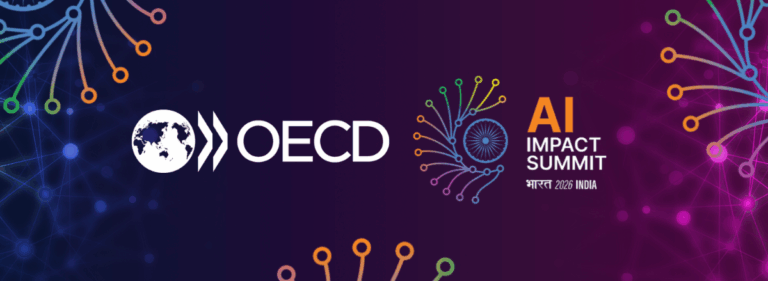With mounting pressure on health systems, can AI help 8 billion people to obtain optimal health outcomes?

The OECD AI Health Expert Group and the OECD’s work on AI in health are available at oecd.ai/health.
One of the Sustainable Development Goals (SDG) is to ensure healthy lives and promote well-being for all ages. To achieve this vision, individuals will need more control over their health outcomes, empowered by their health data and guided by healthcare professionals. In a world of limited resources, where health systems face increasing pressure due to several serious challenges, societies must empower patients to reach this SDG.
The COVID-19 pandemic exposed the global health system’s fragility, underscoring the importance of robust infrastructure, sufficient personnel, and advanced technologies to withstand crises. Yet, post-pandemic healthcare systems worldwide struggle with workforce shortages. For instance, among OECD countries, Turkey has two physicians per 1,000 people, and Colombia has fewer than two nurses per 1,000 people.
The forecasted increase in workforce shortages, budgetary constraints, increasing demands from ageing populations, rising mental health issues, pandemics, and the impact of climate change all paint an alarming picture for the future. These challenges result in suboptimal care, long waiting times, unmet medical needs, insufficient coverage in remote areas, and low satisfaction with health services. Beyond this, the fragility of health systems has repercussions beyond healthcare, including higher public spending and reduced economic productivity.
Empowering patients to actively contribute to their health outcomes is imperative to alleviate the pressure on health systems. They must transcend the passive role of service recipients and become proactive agents in improving their well-being and preventing diseases.
The promise of AI in alleviating pressure on health systems
The vision of empowering people for healthy lives and well-being can become a reality through the strategic use of science and technology. Implementing AI at scale in a human-centred, responsible, equitable, and sustainable manner can significantly enhance health systems. AI can automate administrative tasks and free substantial time for healthcare providers to focus on patient care. It can also extend health services to remote or underserved areas, improving healthcare access for millions worldwide living hours away from the nearest healthcare facility. Furthermore, personal AI assistants can enhance health literacy, reduce information asymmetry between healthcare providers and patients, reinforce shared decision-making, and ultimately empower patients.
Scalable AI solutions can help
If implemented responsibly and equitably, scalable solutions can prevent deepening health inequities and help healthcare systems leverage AI’s potential to alleviate pressure on health systems. Yet, despite the technology’s availability, AI solutions are not implemented at scale across healthcare systems. Their adoption varies significantly, with many implementations occurring in silos. This fragmented approach risks expanding current digital divides into digital canyons. High stakes in healthcare require a cautious approach, but the opportunity costs of delaying the implementation of beneficial technologies are substantial. Not employing a technology that could save resources and lives is harmful by inaction. Therefore, efforts must focus on advancing public benefit from AI efficiently and with minimal delay while mitigating risks. Policies should aim to reconcile regulation and risk management with innovation and scalability.
Data is the critical ingredient to the success of all AI solutions. Therefore, building an agreed-upon data and digital foundation is crucial to successfully deploying AI in health. AI solutions cannot scale effectively and equitably without adequate data collection, utilisation, and sharing. However, on a global level, data are fragmented, interoperability is insufficient, and sharing is limited.
In addition to the fragmentation of data resources, the known bottlenecks to scaling AI solutions for healthcare nationally and regionally include incompatible regulations, mistrust in AI solutions, unharmonised standards, lack of skilled human resources and insufficient infrastructure.
The OECD AI in Health Expert Group is an international forum to help expand human-centred, responsible, equitable and scalable AI solutions
In May 2024, the OECD assembled a time-limited Expert Group on AI for Health to create a forum for exchange and mutual learning and to address the challenges in implementing AI at scale and in a human-centred, responsible, equitable, and sustainable manner. The Expert Group comprises over 60 members from 27 countries and 13 international organisations, advocacy groups, and patient representatives. This marks a significant step in leveraging AI to empower 8 billion people through data and to help them achieve their desired health outcomes.
The Expert Group’s work will focus on compatible policies for developing, implementing, and scaling AI beyond silos, making it accessible and useful globally. The group will develop insights to support a future where data and AI enable healthcare providers and empower patients. This involves addressing critical challenges around regulatory compatibility, standards harmonisation, trust in technology, incentives, and data governance.
We look forward to members of governments, international organisations, academia, civil society, and patient representatives working together to exchange knowledge and experiences towards a common framework for state-of-the-art, efficient, and equitable health systems powered by data and AI.
For more information about the expert group, please contact Derya Şahin (derya.sahin@oecd.org) or Eric Sutherland (eric.sutherland@oecd.org).


































